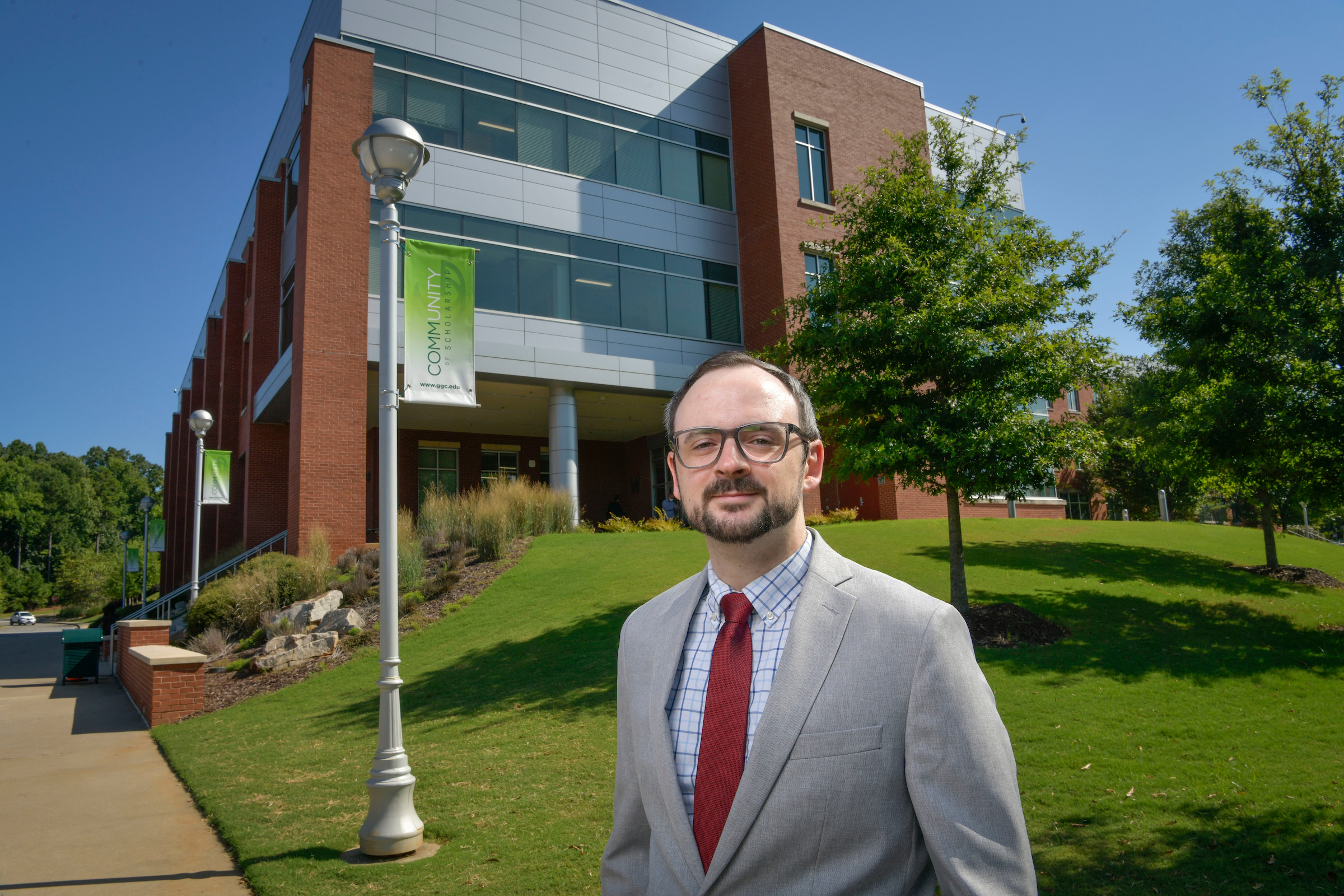news
Georgia Gwinnett College economist discusses interest rates, housing market in advance of upcoming Fed meeting

Eight times a year, the Federal Open Market Committee, part of the Federal Reserve System and often referred to as “the Fed,” meets to make decisions about the country’s financial systems that affect short- and long-term interest rates, foreign exchange rates, the amount of money and credit available, and, ultimately, a range of economic variables including employment, output, and the prices of goods and services. In other words, what happens in those meetings affects every American’s bank account, and the next meeting is Jan. 30 – 31.
Philip Vinson, assistant professor of economics in Georgia Gwinnett College’s School of Business, keeps a close eye on the Fed. He shared some of the impacts on working-class Georgians he expects from the upcoming meeting.
“We’ve had a relatively large inflation problem for the past couple of years. It went up to 9.1 percent at one point,” Vinson said. “One way to think about inflation is as a byproduct of too much money chasing not enough stuff. Too much money flowing through the economy pushes prices up and causes inflation. After the pandemic, we had a combination of supply chain problems – not enough stuff coming in – and people coming out into the world again to buy things. Thus, inflation.”
The latest data showed that in the 12 months through December, U.S. consumer prices edged 3.4 percent higher after increasing 3.1 percent in the 12 months ending in November, tempering expectations of an interest rate cut. The Fed targets an inflation rate of two percent.
Fortunately for the average consumer, Vinson says he doesn’t expect the Fed to announce an increase in interest rates after their upcoming meeting.
“The interesting thing is, they’ve actually signaled a desire to lower rates again,” said Vinson. “Rate increases are generally bad news to markets, so when you think about the Fed communicating that they’re maybe going to lower rates again, that tells me that they’re very unlikely to raise them even though inflation went up again.”
In Georgia, a primary concern on many people’s minds is the housing market, which is significantly influenced by the Fed's actions. Vinson noted that increases in interest rates can lead to a decrease in house prices by dampening demand. He said rate increases did cause house prices to dip down initially, but it was brief. Prices have gone right back up due to strong demand in the Atlanta area.
“Many people are moving from very high-cost places like New York City and the West Coast. They turn to places like Atlanta, where real estate looks much more reasonable. To us, the price of buying a home in this area is getting ridiculous, but to them, our house prices are dirt cheap.”
Vinson said there are also forces at work on the housing market beyond interest rates.
“I think we’re still feeling the effects from the massive recession in 2008,” he said. “Home construction relies on the health of the financial system. Before 2008, we had this big housing bubble, but when the bubble collapsed, we stopped building houses. All house construction ground to a halt all at once. In the recovery, we started to build houses again, but not at the same level – and people keep moving to these desirable locations. We’re building houses, but not as quickly as people are moving here.”
So, it's not great news for working-class people hoping to buy a home. Vinson suggested the best way to solve the problem would be to pass a government policy that gets more housing built, not just single-family homes but a good mix of housing that includes apartments. Until then, buy as soon as you are able.
“My students approach me all the time and ask, ‘When is the housing market going to collapse so I can afford a house?’” said Vinson. “I say as soon as you can get approved for a mortgage, you need to go for it, because I would not gamble on a big drop in prices any time soon.”
